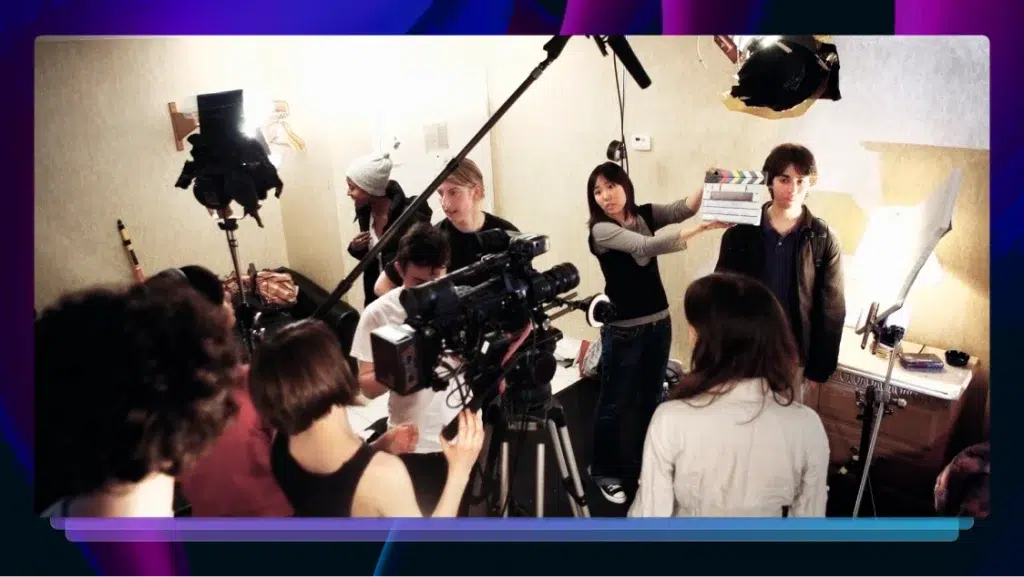How to Run a Virtual Film Festival Online With Zero Hiccups
This guide will help you set up and run a virtual film festival. Running or hosting an online film festival is made posible with technology.

COVID-19 led to a shutdown of public events, ranging from school outings to the 2020 Summer Olympics. Film festivals were not spared. To contain the virus, numerous live events were canceled. Scientists tell us that this is the new normal and we should expect more pandemics in the future. To remain relevant, film festivals must move to virtual space.
Running or hosting an online film festival isn’t much different from a traditional film festival. In fact, in many respects, the logistics are much easier to handle. The main difference is in the online setup. Below is a guide to help you set up and run a virtual film festival.
Research and Learn
To get started with planning your online film festival, we suggest you check out how some existing film festivals have managed to make the transition to virtual. For example, below are festivals that have successfully planned virtual events.
- Nantucket Film Festival
- Indy Shorts International Film Festival
- San Francisco Documentary Film Festival
- Toronto International Film Festival
- Harlem International Film Festival
- Atlanta Film Festival
- Camden International Film Festival
If the above is anything to go by, it’s clear that film buffs want to watch film festivals online. There is no reason you shouldn’t throw your hat in the ring.
You don’t need to reinvent the wheel. If you know a friend or colleague who has already successfully run an online film festival, reach out to them and pick their brain. Get some insights on how they did it.
Choose the Right Time
Take a look at what the competition is doing. Is there another festival with a huge following currently running online? Are there multiple festivals currently running? Are the festivals running in your target genre? Avoid running at a time when your fans are going to be attending another event.
Create a Website
Create a professional-looking website. Don’t cut corners on a website because that is where people go to learn more about your event. This is important when you are first starting out because no one has ever been to your film festival yet. So, people are essentially taking you at your word that it’s going to be a great event. A website allows potential attendees a chance to get to know you better and learn more about the festival and decide if it’s worth their time. This doesn’t mean that you have to spend thousands of dollars on a website. You can get a professional WordPress website at a freelance marketplace for a few hundred dollars.
Pick a Streaming Service
Since there isn’t a physical venue, you need to decide on a platform to stream your event. There are dozens of applications to choose from – and so, to help you settle on the best one for your needs, consider the following factors:
- Your target audience: Carry out research to determine where your audience loves to hang out. For example, millennials are known to prefer Instagram while Facebook Live and YouTube are more universal.
- Cost and profit motive: Many streaming applications such as Facebook Live and YouTube are free. However, if you intend to sell tickets then you need tools to allow you to control access to the event. Examples of powerful live-streaming tools with advanced features include IBM Cloud Player, Vimeo, and JW Player. Also, free tools such as Facebook Live and YouTube come with many limitations. There are certain things you can’t do, such as playing certain types of music, and there are also content restrictions that limit your creative freedom.
- Password security: Password protection allows you to set a password which users must enter to access the virtual film festival.
- Geographic and Referrer Restrictions: In addition to password security, this feature allows you to restrict content to people within a specified geographic area. Referrer restrictions prevent users from pirating your content by embedding the live stream on other sites.
Payment Gateway
If you’re selling tickets online, the security of the payment method is paramount. There are several payment gateways available. PayPal and Stripe are the most well-known but may not necessarily serve your needs. Vimeo OTT, for example, has a payment gateway that transforms your live content into a full-scale subscription service. To settle on a payment gateway, we suggest you consider the importance of the following features to you:
- Transaction costs and fees
- Dispute and chargeback fees
- Refund fees and refund policy
- Global availability and supported currencies for international viewers
- The customer support offered, e.g. phone, chat, or email.
- Accepted modes of payment
- The overall checkout experience
Submissions
Your project will be a dud unless you can attract submissions. To build submissions and attendance, you must have a strategy to grow recognition and social reach. Consider the following courses of action:
- Offer value: Filmmakers come to your website seeking industry recognition, cash prizes, or a platform for social causes. Think of incentives along these lines and incorporate them into your marketing communication.
- Media mention: A media mention can go a long way to raising the awareness of your event and attract submissions. If you have contacts in the media, reach out to them. Also, write newsworthy press releases to attract favorable mentions in the media.
- Partnerships: Identify businesses and influencers with whom you can partner. A well-thought-out partnership arrangement can help you build the momentum you need.
- Blogger outreach: This should start weeks in advance. Niche bloggers in the film industry can provide you with the recognition you need to drive up submissions and attendance. Consider free tickets or a compensation fee as a promotional incentive.
- Easy-to-submit experience: Receive your submissions via digital upload by sharing the submission link with filmmakers. Ensure your rules, regulations, and deadline are prominently displayed on your website.
Submissions are also an important source of revenue for an online film festival. If you decide to charge for submissions, then a payment gateway is necessary.
Licensing
While requesting submissions, you must be alive to the fact that online film festivals create a unique licensing problem. Filmmakers are often averse to allowing their content to be live-streamed. Their biggest fear is that their content may end up on video hosting sites or worse – Pirate Bay. The prospect of losing distribution deals is unpalatable. An in-person festival has safeguards against content theft. To deal with these concerns, we suggest as follows:
- Do not provide video-on-demand live streaming but rather stream during a limited period.
- Do not require exclusivity. Give filmmakers the freedom to retain all their rights and work with other businesses.
Ensure that your policies, rules, and regulations do not conflict with the video-on-demand rights that distributors typically acquire.
Closed Captions
Following submissions, it is important to caption all your videos. While it is common practice for non-English dialogue to be accompanied by English subtitles, it is also recommended that you caption English films with foreign subtitles. This helps get the content in front of a larger international audience. The film festival’s website gets a search boost ranking as films rank higher in search results.
Captions also improve the overall viewer experience. Consider using Rev, our captioning service that uses human captioners to guarantee accuracy.
Viewers can view captions by selecting them from a menu provided by most live stream services. For example, to view captions/subtitles on a YouTube stream, click the icon marked CC at the bottom of the video.

Marketing
A virtual film festival is not limited by geography. This means you can attract viewers across borders and reach a much wider audience. To do so, you will need a cogent digital marketing strategy that includes content, social media, and search marketing. Video marketing is particularly powerful in attracting a global audience. Identify your target audience persona and design compelling messaging that can drive event sign-ups. There is a wide range of marketing tools you can employ at little or no cost to you.
Consider scheduling your films to screen higher quality content towards the end of the event. This builds anticipation and keeps your audience glued to their screens as the content progressively gets better and better. It also builds your reputation for future projects.
Also, beware of the bell curve that is typical of ticketing. You will likely have a surge of ticket sales on the on-sale date, after which the demand will taper off before surging massively in the last few hours to the event. So, provided you have been diligent with your marketing efforts, don’t fret if you’re one day away from the event and your ticket sales aren’t what you expected. To mitigate the last-minute sales problem, consider early-bird pricing strategies to encourage more attendees to buy tickets early.

Logistics
There are many logistics and aspects of an online film festival. Some of the main items to give special attention include:
- Curating, judges, and awards: Select your judges and ensure the curation process is complete before the day of the event. Decide on the nature of the award and how it will be presented.
- Staffing, roles, and duty allocation: Everyone needs to be apprised of their role and when they can expect to speak or engage the audience. Have an event program and a rehearsal before the main day.
- Punctuality and refund policy: Being an online event, stress the importance of punctuality. Participants often log in late and get disappointed to find they have missed out on a screening. Have a strict refund policy for such situations.
Final Thoughts
Planning a virtual online film festival isn’t hugely different from an in-person festival. Lack of a physical venue makes it easier and less costly to manage. The main challenge is getting the right team to work together to ensure the program runs smoothly without a glitch. The solution lies in investing in the right technology to run the event.
But there is one aspect of in-person film festivals that online festivals can’t match. People go to film festivals for the experience. They do so to interact with fellow film buffs and filmmakers and generally have a thrilling communal experience. This ingredient is missing in a virtual event. Can technology fill this missing piece of the puzzle? It would seem so.
Virtual reality technology is shaping the future. In other industries, virtual reality and augmented reality are immersing customers into realistic environments. You can drive a Lamborghini from the comfort of your living room. In the film industry, multiple people can now explore a movie in a virtual social space. It could be just a matter of time before virtual reality film festivals become the norm.
Subscribe to The Rev Blog
Sign up to get Rev content delivered straight to your inbox.








